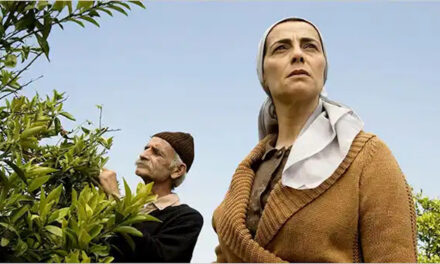By Rabbi RAYMOND APPLE
Let’s start with the e history-poem Ma’oz Tzur is part of the tug of war between Ashkenazim and Sephardim.
Both groups started off with Psalm 30, “Mizmor Shir Chanukat HaBayit,” as the Chanukah song (Sof’rim 18:2). Then at some point in the Middle Ages a person named Mordechai wrote a history-poem that began with the words Ma’oz Tzur, “Rock of Your Stronghold,” which come from Isaiah 17:10.
 To make sure the order of verses was maintained he started each of the first five verses with the letters that made up his name.
To make sure the order of verses was maintained he started each of the first five verses with the letters that made up his name.
Eventually the Sephardim adopted the Ashkenazi song, though at the same time they kept Psalm 30.
Where did the poet get his version of history?

He knew what general themes he wanted, ranging from Pharaonic Egypt to Nebuchadnezzar’s Babylon, the Persian rabbi Mordechai and his King Ahasuerus, Antiochus and the Greeks, and even the learned rabbis (“b’nei vinah,” “men of understanding”) who ordained the singing of Hallel on Chanukah.
The poem utilized phrases and allusions from the Bible, Talmud and Midrash. “Malchut Eglah,” the kingdom of the calf, comes from Jeremiah 46:20, and refers to Egypt. “Shoshanim” —lilies —is the Jewish people (Shir HaShirim 2:2).
How did the famous Ma’oz Tzur melody develop?
It too was an Ashkenazi tune, though it began as a German folk tune that the Jews picked up from their European environment and turned into the musical motif of Chanukah — not just the Ashkenazim but the Sephardim too.
The sixth verse has a whole range of hints that clearly imply Christianity but are not spelled out because the Jews feared Church censorship. It says, “Thrust away Admon in the shadow of Tzalmon” —“Admon,” red, is a hint of Rome; “Tzalmon,” originally a hill near Shechem, refers to Christianity because “tzelem” is a cross.
The verse ends with a rather puzzling phrase about seven shepherds at the end of days. The phrase originates in Micah 5:4 and tells us that in messianic times there will be a sevenfold (i.e. complete) team of Divine agents that protect and preserve Jewry and the Holy Land.
Two Sides Of Chanukah
The sages in the Talmud (Shab. 21b) connected Chanukah with the miracle of the little flask of Temple oil that continued to burn for a total of eight days.
The Apocryphal Books of Maccabees (I Macc. 4:36-59) linked it with Judah’s military victory that led to the Temple being reconquered.
The sages emphasized the spiritual and metaphysical aspect; the authors of the Apocrypha stressed the military and political side of the episode.
The sages were not unaware of the military victory but did not mention it. Their idea was that events only have significance if they can be seen as part of God’s design for history. In celebrating such events there had to be a spiritual focus.
Their principle may be seen as a guide us when we consider how to assess and celebrate the State of Israel.
If it is judged and marked in terms of airplanes and weaponry its message is obscured. Only if it is seen as the finger of God in human history does it assume a real cosmic significance.
Democracy & Antiochus
No-one could have predicted the festival of Chanukah.
After all, King Antiochus was a pagan, and paganism is by nature tolerant; it deems one person’s god as good as another’s.
Why then did Antiochus try so hard to eradicate Judaism, and in the process create a need for Chanukah?
Because an “anything goes” philosophy is not as democratic as it seems. It is democracy gone mad.
If one god is as good as another, then all are nothing. Likewise if one ethic is as good as another and good and evil are matters of personal opinion, or every lifestyle — holiness or hedonism —is equally legitimate, or every idea is as acceptable as every other.
That is why Matitiyahu had no choice but to raise the banner of revolt against Antiochus. By proclaiming, “Whoever is on the Lord’s side, come with me!” Matitiyahu was saying that there can only be one true God, one valid ethic, one sanctified lifestyle, one set of reasonable ideas.
This probably made him unpopular among the Hellenists, and he was considered a spoilsport. But principle is principle. A person who believes in a principle has no choice but to defend it, though this must be done with “derech eretz” and dignity.
The Jar Of Oil
Why do the Books of Maccabees not mention the jar of oil from the Chanukah story?
The story is neither in Maccabees nor Josephus. The first time we find it is centuries later in the Talmud (Shab. 21b), where the focus changes from the military victory to the Divine miracle.
Obviously the rabbis knew of the Maccabean wars, but what they disapproved of was the emphasis on military might and political power.
With the perspective of history they saw that the spiritual dimension was lost after the victory when the Maccabees became susceptible to corruption and the other failings that often characterize politicians. History therefore needed to recognise that national independence was not the only important achievement: the crucial victory was the survival of Judaism.
There is a Chasidic saying, “Hallel is said on Chanukah and not on Purim because on Purim the body of the Jew was saved and on Chanukah it was his soul.”
One can go further and say that without the story of the jar of oil Chanukah would have risked becoming a Purimspiel.
Rabbi Raymond Apple was for many years Australia’s highest profile rabbi and a spokesman on Judaism. After serving congregations in London, Apple was chief minister of the Great Synagogue, Sydney, for 32 years. Now retired, he lives in Jerusalem and blogs at http://www.oztorah.com.
Maoz Tzur lyrics translated:
O mighty stronghold of my salvation,
to praise You is a delight.
Restore my House of Prayer
and there we will bring a thanksgiving offering.
When You will have prepared the slaughter
for the blaspheming foe,
Then I shall complete with a song of hymn
the dedication of the Altar.
My soul had been sated with troubles,
my strength has been consumed with grief.
They had embittered my life with hardship,
with the calf-like kingdom’s bondage.
But with His great power
He brought forth the treasured ones,
Pharaoh’s army and all his offspring
Went down like a stone into the deep.
To the holy abode of His Word He brought me.
But there, too, I had no rest
And an oppressor came and exiled me.
For I had served aliens,
And had drunk benumbing wine.
Scarcely had I departed
At Babylon’s end Zerubabel came.
At the end of 70 years I was saved.
To sever the towering cypress
sought the Agagite, son of Hammedatha,
But it became [a snare and] a stumbling block to him
and his arrogance was stilled.
The head of the Benjaminite You lifted
and the enemy, his name You obliterated
His numerous progeny —his possessions —
on the gallows You hanged.
Greeks gathered against me
then in Hasmonean days.
They breached the walls of my towers
and they defiled all the oils;
And from the one remnant of the flasks
a miracle was wrought for the roses.
Men of insight — eight days
established for song and jubilation
Bare Your holy arm
and hasten the End for salvation –
Avenge the vengeance of Your servants’ blood
from the wicked nation.
For the triumph is too long delayed for us,
and there is no end to days of evil,
Repel the Red One in the nethermost shadow
and establish for us the seven shepherds.









